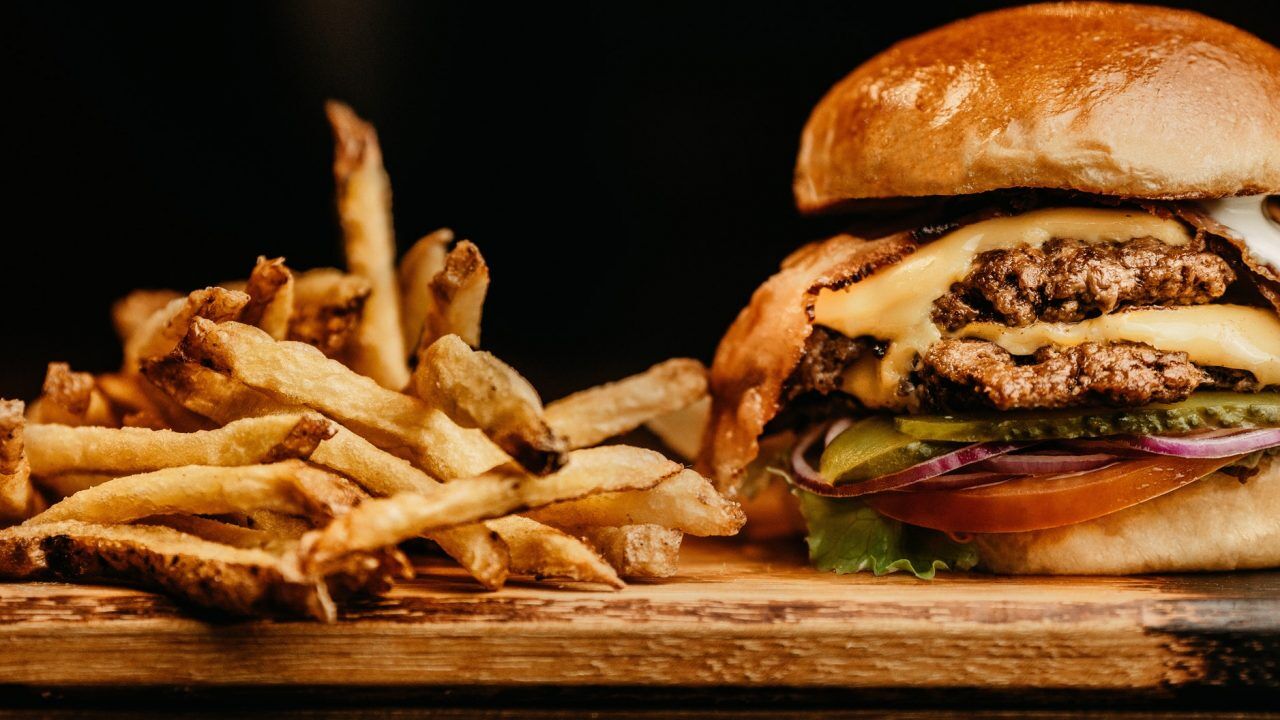Regardless of your weight and physical activity, eating as much heart-unhealthy foods as you want will cause your cholesterol levels to go up and put you at risk for heart disease, sooner or later. You can be thin, have a healthy weight, or even physically fit and still have high cholesterol.
Any body type can suffer from high levels of bad cholesterol, although overweight and obese people are more prone to it. And if you are the type who does not easily gain weight, you may be less aware of how much damage all the trans and saturated fats you are eating are doing to your heart.

Weight Loss Does Not Always Mean Lowered Cholesterol
A combination of factors determines cardiovascular health, with the major ones being diet, physical activity, weight, genetics, and age. But being overweight or obese is associated with an increased risk for cardiovascular disease due to high levels of bad cholesterol (LDL) and low levels of good cholesterol (HDL).
Cholesterol is a fatty substance that the body uses to make hormones and metabolize food. When there is too much low-density lipoprotein (LDL) or bad cholesterol, you are more likely to have plaque buildup in your arteries, which often impedes proper blood flow to the heart and other organs. The higher your LDL levels, the higher your risk for heart disease. And higher LDL levels often go hand-in-hand with being overweight or obese.
High-density lipoprotein (HDL) or good cholesterol actually helps keep LDL levels in check. So low HDL levels, which is also common among overweight or obese individuals, also increases risk for heart disease.
You can know your risk for high cholesterol, or if your levels are already higher than normal, through a blood test. The optimal LDL level is less than 100 mg per deciliter of blood, but between 100 mg/dL and 129 mg/dL is still normal.
Losing excess weight is definitely a step in the right direction. But this, alone, will not guarantee lowered bad cholesterol levels. Increasing HDL levels should also be a priority, among others. The key to correcting this combination of risk factors for cardiovascular disease is a holistic approach to weight loss – not just a drop in weight in numbers. This means being more mindful of your diet, physical activity, and overall health.
Weight-Loss Strategy to Lower Cholesterol
A combination of exercise and a heart-healthy diet is the most effective weight-loss strategy to lower cholesterol.
Reduce daily intake of saturated fat and dietary cholesterol.
Your saturated fat intake should be no more than 7% of total calories or about 16 grams, and limit your dietary cholesterol to a maximum of 200 milligrams per day. Saturated fat is the worst contributor to high cholesterol. You will have to read food labels so you can keep track of your consumption of both saturated fat and cholesterol.
The easiest way to ensure that you’re not going overboard is to eat more fruits, vegetables, and whole grains, and less of red meat, fried foods, full-fat dairy products, and baked goods.
Reduce calorie intake.
Abdominal fat is one of the indicators of high cholesterol and is caused by excess calories being stored as fat in the abdominal region. If you are an overweight woman, aim for a waist circumference of less than 35 inches; for men, the target should be below 40 inches.
The recommended dietary calorie allowance is calculated for individuals with normal weight, so you should aim for calorie intake that is lower than the RDA. your goal is to burn more calories than you consume, so increasing your physical activity is also important. Keep track of your calorie intake by keeping a food diary.
Eat more fiber.
You should aim for 5 to 10 grams of soluble fiber per day. You can get this from fruits, vegetables, beans, and oats. Soluble fiber prevents cholesterol from getting into your bloodstream by trapping it while still in the digestive tract so that it simply passes through your body instead of getting absorbed.
Add plant stanols and sterols to your diet.
These are natural compounds found in nuts, seeds, and vegetable oils. They help decrease cholesterol absorption into the bloodstream by competing with it while in the digestive tract. Look for food products in the supermarket that are “enhanced with stanols and sterols,” such as sandwich spreads, margarine, and orange juice. Add about two grams of these plant compounds to your daily diet.
Weight Loss and Lowered Cholesterol – Bottomline
You can have a healthy weight and still have high cholesterol levels. But you are more likely to have unhealthy cholesterol levels if you are overweight or obese. Losing weight is the right towards lowering your cholesterol, but it is not the only step.
You will have to adopt an overall healthy lifestyle, which includes eating healthy and engaging in regular physical activity. Lowering your weight does not automatically lower your cholesterol. There are foods you have to avoid or minimize consumption of; there are foods you should eat more of.
Lowering your cholesterol is not just a one-time goal. You have to commit to your healthier eating patterns and a more active lifestyle to keep your cholesterol at healthy levels. Make sure to visit your doctor so you can find out the relevant numbers you need to focus on and achieve, i.e. LDL and HDL levels.
When you successfully lower your cholesterol levels through weight loss and healthy habits, you will also significantly reduce your risk for other health issues associated with being overweight or obese, such as cardiovascular disease and diabetes.
Learn more about living a healthier lifestyle through Modern Fit‘s customized offerings!
